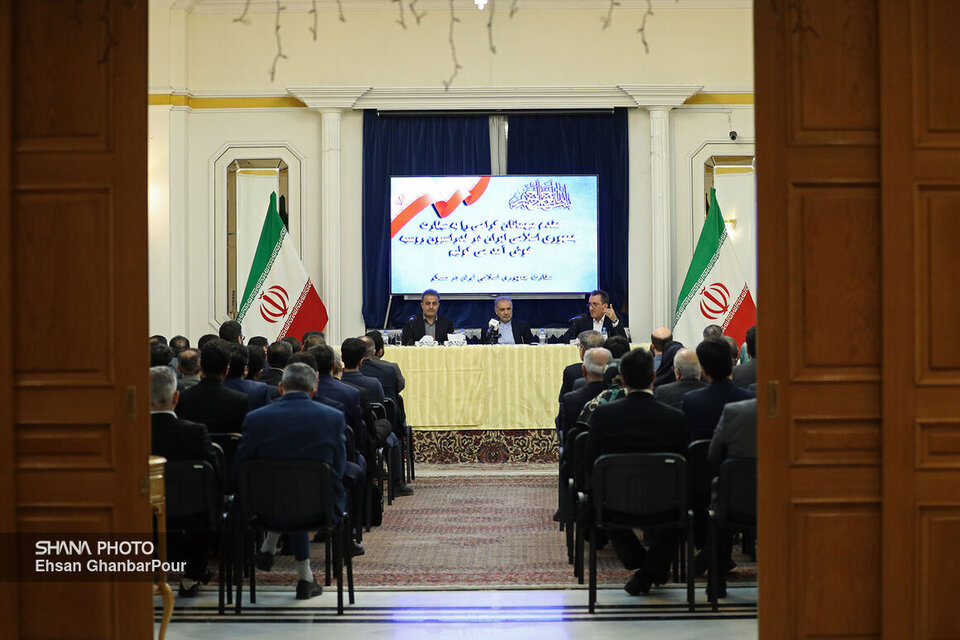Kazem Jalali emphasized the need to strengthen trade ties and complete joint projects to enhance Iran’s security and international standing.
Jalali made the remarks Wednesday evening during a meeting with Iranian participants of the 18th session of the Iran-Russia Joint Economic Commission.
He said relations between the two countries are growing, with open avenues for cooperation, and are currently experiencing a "golden era."
Citing neighborliness as a key factor in strengthening ties, Jalali stated that developing relations between Iran and Russia is a necessity.
He referenced a recent letter from Iran’s Leader to Russian President Vladimir Putin, in which the Leader emphasized the desire for a "strong Russia with a global role" alongside an "independent and great Iran."
Jalali noted that the alignment of Iran and Russia’s approaches on regional issues and the international power structure is another factor driving closer ties.
He highlighted Russia’s engagement with discourse initiated by Iran, such as within BRICS, which he described as an initiative of the Islamic Republic.
Mutual needs between Iran, Russia
Jalali stressed that Russia needs Iran today, just as Iran relies on Russia in certain areas.
"We must move forward in advancing bilateral relations with a proper understanding of mutual needs," he said.
Referring to the approval of the Comprehensive Strategic Cooperation Treaty between Iran and Russia by the Russian Federal Council and State Duma, Jalali said Russia requires Iran in various sectors.
Russia determined to open corridor
Jalali said Russia is seeking export routes beyond the Black Sea, citing a $500 billion budget allocation for the INSTC as evidence of its serious commitment to activating the northern passage.
He noted that goods are already being transported via northern routes, with volumes increasing from 3.7 million tons in 2022 to about 33 million tons in 2023.
Quoting Putin, Jalali said opening alternative routes is a "strategic" priority beyond cost-benefit considerations. "Russia is determined to open the corridor, and we must seize this opportunity," he added.
The ambassador explained that the corridor has three branches, with the eastern branch already operational. Freight volume on this route rose from 600,000 tons in 2023 to 1.8 million tons in 2024, against a target of 2 million tons. For early this year, the goal is 3 million tons, with the branch’s total capacity at 15 million tons.
Iran could become ‘Second Suez Canal’
Jalali called the INSTC an "advantage for Iran and a necessity for Russia." If the route to Europe opens, he said, Iran could become the "world’s second Suez Canal" and even the most important transit pathway globally.
He added that completing the corridor through Iran would enhance the country’s international security standing.
Jalali also welcomed Russia’s proposal for gas transit via Iran, urging swift implementation of the plan.
Need to boost bilateral trade
Jalali said Russia’s economy needs Iranian goods, with bilateral trade reaching $5 billion, according to Russian customs data.
He pointed to the Iran-Eurasian Economic Union free trade agreement, set to take effect May 15, 2025, and urged Iranian businesses to enter this key market and boost exports to Russia.


Your Comment